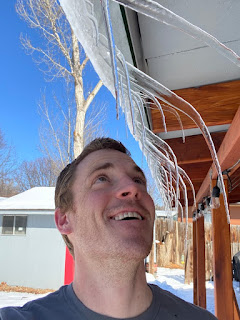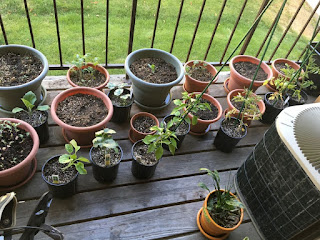"There are no gardening mistakes, only experiments."
– Janet Kilburn Phillips
During the first year I learned what grows well where I live, what does not grow well, what all the different seedlings look like and how to differentiate them from weeds, weeds suck and will crowd out anything / everything if you give them a chance to, the drip irrigation system rocks, and tilling isn't terribly fun when the soil is as hard as cement (it is a good arm workout) but it does break up the soil which makes it easier for the plants to grow in. I'm sure I learned lots of other things but those are the things that stand out in my mind as I look back on the photos and re-live what happened that year.
For my second year (Summer of 2018) of the urban farm, I took what I learned during the first year, applied it, and tried out some new ideas that I had no idea if they would work or not. Here's what happened during the second year:
Winter Vegetable Experiment (February 2018):
I attempted to grow some plants inside to try and get some fresh produce during the winter. They grew but it took a lot of energy (even with LED grow lights). Not the best option but it works.






